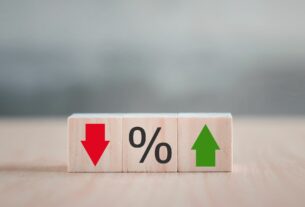In the world of investing, understanding how economic changes impact your investments is crucial for making informed decisions and maximizing your returns. Economic shifts can influence various aspects of the market, from interest rates and inflation to employment levels and global trade. This guide will delve into how these economic changes affect your investments and offer strategies to navigate them effectively.
1. Understanding Economic Indicators
Economic indicators are statistics that reflect the health of an economy. They play a vital role in shaping investment strategies by providing insight into current and future economic conditions. Key economic indicators include:
- Gross Domestic Product (GDP): Measures the total value of goods and services produced within a country. A growing GDP usually signals economic expansion, which can positively affect investments.
- Inflation Rate: Reflects the rate at which the general level of prices for goods and services is rising. High inflation can erode purchasing power and impact investment returns.
- Unemployment Rate: Indicates the percentage of the labor force that is unemployed. High unemployment can signal economic trouble, potentially leading to decreased consumer spending and lower corporate earnings.
- Interest Rates: Set by central banks, interest rates influence borrowing costs and investment returns. Lower interest rates can boost stock prices, while higher rates might lead to a decline.
- Consumer Confidence Index (CCI): Measures the degree of optimism that consumers feel about the overall state of the economy and their personal financial situation. High consumer confidence typically leads to increased spending and investment.
2. How Economic Changes Impact Different Types of Investments
a. Stocks
Stocks are highly sensitive to economic changes. Here’s how various economic factors can affect stock investments:
- Interest Rates: When interest rates rise, borrowing costs increase for companies. This can reduce corporate profits and lead to lower stock prices. Conversely, lower interest rates can boost stock prices by making borrowing cheaper and encouraging investment.
- Inflation: High inflation can erode the real value of corporate profits. Companies may struggle to pass on higher costs to consumers, which can negatively impact stock prices.
- Economic Growth: During periods of economic expansion, companies often see increased revenues and profits, which can drive stock prices higher. Conversely, during economic downturns, stock prices may fall as corporate earnings decline.
b. Bonds
Bonds are generally considered safer than stocks, but they are still affected by economic changes:
- Interest Rates: Bond prices have an inverse relationship with interest rates. When rates rise, bond prices typically fall, and vice versa. This is because existing bonds with lower rates become less attractive compared to new bonds issued at higher rates.
- Inflation: Inflation can erode the purchasing power of fixed bond payments, leading to a decrease in bond prices. Inflation-protected securities, like Treasury Inflation-Protected Securities (TIPS), can help mitigate this risk.
c. Real Estate
Economic changes can have a significant impact on real estate investments:
- Interest Rates: Higher interest rates can increase mortgage rates, which may reduce demand for real estate and lead to lower property prices. Conversely, lower interest rates can stimulate the real estate market by making mortgages more affordable.
- Economic Growth: A growing economy often leads to increased demand for commercial and residential properties, driving up property values and rental income. However, during economic downturns, property values and rental income may decline.
d. Commodities
Commodities, such as gold, oil, and agricultural products, are influenced by various economic factors:
- Inflation: Commodities like gold are often seen as a hedge against inflation. When inflation rises, the demand for commodities can increase, driving up their prices.
- Economic Growth: The demand for commodities can fluctuate with economic growth. For example, during periods of economic expansion, demand for oil and industrial metals may rise, boosting their prices. Conversely, during economic slowdowns, demand may fall.
3. Strategies to Manage Investment Risks Amid Economic Changes
a. Diversification
Diversification involves spreading your investments across different asset classes, sectors, and geographic regions. This strategy helps mitigate risks associated with economic changes, as different assets may react differently to economic shifts. For example, while stocks may struggle during economic downturns, bonds or commodities might perform better.
b. Regular Monitoring and Rebalancing
Regularly monitoring your investment portfolio and rebalancing it as needed ensures that it remains aligned with your financial goals and risk tolerance. Rebalancing involves adjusting your asset allocation to maintain your desired risk level and capitalize on new opportunities.
c. Staying Informed
Keeping up-to-date with economic news and trends helps you make informed investment decisions. Pay attention to economic reports, central bank announcements, and global events that could impact the markets.
d. Consulting Financial Professionals
Seeking advice from financial professionals, such as financial advisors or investment managers, can provide valuable insights and help you navigate economic changes effectively. They can offer personalized strategies based on your financial goals and risk tolerance.
Also Read: How to Choose the Best Corporate Training Program
4. Case Studies: Economic Changes and Their Impact on Investments
a. The 2008 Financial Crisis
The 2008 financial crisis was triggered by a collapse in the housing market and subsequent financial instability. During this period, stock markets experienced significant declines, and many investors faced substantial losses. Real estate values plummeted, and bond markets became volatile. The crisis highlighted the importance of diversification and risk management.
b. The COVID-19 Pandemic
The COVID-19 pandemic caused widespread economic disruptions, leading to market volatility and uncertainty. Stock markets experienced sharp declines, while certain sectors, such as technology and healthcare, saw growth. The crisis underscored the need for adaptability and the ability to identify investment opportunities in changing economic conditions.
Conclusion
Understanding how economic changes affect your investments is essential for making informed decisions and managing risks. By staying informed about key economic indicators, diversifying your portfolio, and seeking professional advice, you can navigate economic shifts effectively and optimize your investment returns.
As you continue to monitor economic conditions and adjust your investment strategies accordingly, you’ll be better equipped to weather economic fluctuations and achieve your long-term financial goals. Remember, investing is a journey, and being prepared for economic changes is a crucial part of that journey.




